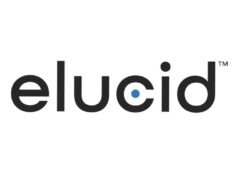 TG Medical has announced the successful completion of patient enrolment in its approval study for the TG dilator—a novel device designed to treat intracranial atherosclerotic disease (ICAD) in patients presenting with acute ischaemic stroke due to large vessel occlusion.
TG Medical has announced the successful completion of patient enrolment in its approval study for the TG dilator—a novel device designed to treat intracranial atherosclerotic disease (ICAD) in patients presenting with acute ischaemic stroke due to large vessel occlusion.
“Acute ischaemic strokes caused by intracranial atherosclerosis remain a significant treatment challenge,” said Nobuyuki Sakai (Kobe City Medical Center General Hospital, Kobe, Japan), the principal investigator of the trial. “The TG dilator represents a promising solution to improve recanalisation success and patient outcomes in this difficult-to-treat population.”
This milestone follows promising results from a first-in-human (FIH) trial, published in the Journal of NeuroInterventional Surgery, which demonstrated the TG dilator’s safety and potential efficacy in treating ICAD-related acute ischaemic strokes. A TG Medical press release states that, in the study, all 10 patients achieved significant recanalisation without any device-related adverse events, and 80% attained favourable functional outcomes at 90 days.
The company’s multicentre approval study is being conducted across leading stroke centres in Japan, and has reached full enrolment ahead of schedule, marking what TG Medical describes as a “significant step” toward regulatory approval.
The TG dilator is specifically engineered to address the unique challenges of reopening occluded vessels in the setting of underlying atherosclerotic disease—a common cause of acute ischaemic stroke in Asian populations.
“We are thrilled to announce the completion of enrolment in this pivotal study,” commented Satoshi Tateshima (University of California Los Angeles [UCLA] Medical Center, Los Angeles, USA), the senior author of the FIH publication. “This milestone brings us closer to offering a new, targeted treatment option for patients suffering from this devastating condition.”
TG Medical claims that its TG dilator features a unique design intended to facilitate safe and effective vessel dilation, improving outcomes where conventional thrombectomy devices “may be insufficient”.
Following final data collection and analysis, the company plans to submit results from these studies to Japanese regulatory authorities.









